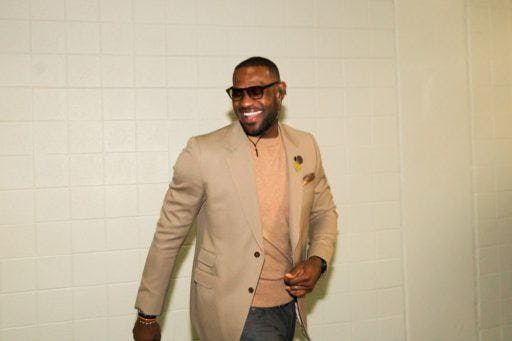It’s the night before your competition. With your heart racing and palms sweating, the pressure is on. Whether you’re gearing up for your first half marathon or a championship football game, the knot in your stomach knows no boundaries. Performance anxiety is real.
Wondering how you can get over this overwhelming feeling stat? Here’s a quick guide to understanding this condition and some tips to keep your game-day nerves under control.
What Is Performance Anxiety?
The Open Access Journal of Sports Medicine describes performance anxiety as an emotional and physical reaction to the stress of competing. And according to studies from Frontiers in Psychology, approximately 30-60% of athletes experience this condition. It can strike at any time, whether during intense competition training or hours before an event.
For athletes, the rush of adrenaline may be beneficial to a certain extent. But when your nerves turn into overwhelming feelings of tension, it can interfere with performance. The good news is you can take steps to prevent those nerves from getting the better of you. As such, you should learn to recognise triggers to channel this adrenaline positively.
What Causes Performance Anxiety?

To understand performance anxiety further, you can turn to the Yerkes-Dodson model. Dubbed after psychologists Robert Yerkes and John Dillingham Dodson, the theory suggests that higher stress levels correlate with lower task performance. So, yes, the more anxious you feel before a game or tournament, the higher the chances of not achieving your desired output.
Want to keep your nerves in check? Watch out for these possible triggers that may be causing your anxiety:
- Excessive external or internal pressure
- Sole focus on results
- Fear of failure
- Poor or inadequate training
- Lack of rest and proper nutrition
How to Recognise Performance Anxiety
While everyone may manifest performance anxiety differently, you can watch out for some clear signals. Pay attention to the sudden changes in your thoughts or daily activities, like sleep patterns. Identifying these signs can help you manage anxiety at the early stages:
- Mood changes
- Chronic fatigue
- Changes to your sleep patterns
- Upset stomach
- Muscle tension
- Irrational thoughts
- Increase in heart rate
- Shallow breathing
How to Overcome Performance Anxiety (With Tips From the Pros)

Here are some strategies to help you calm your nerves while keeping your eye on the prize.
1. Expect to be nervous.
The idea of having zero anxiety before a big event is unrealistic. You can try to block it out or ignore your nervousness, but it’s going to creep in sooner or later. So, learn to manage it. When you come to terms with your anxiety, you’ll have an easier time dealing with it when it comes.
2. Set realistic goals.
Goals like “give it your all” or “go for the kill” are vague and lack structure or direction. By all means, play your best. But play it smart by setting realistic goals. Work with your coach to develop an action plan with attainable objectives. Communicate that you need help in staying calm to play your A-game.
3. Stay consistent with your training.

Whether playing solo or with a team, nothing builds your confidence like consistent training. In an interview for the wellness website Body+Soul, FIFA player and Chelsea FC striker Sam Kerr shared her tips for overcoming performance anxiety. “Having a routine and creating structure [helps]. My advice to others is to start the day knowing what you want to achieve, get moving, and get it done,” she said.
Spare yourself from overthinking with a structured pregame routine. Stick to your training so you can trust in the results of your hard work. On days when you don’t feel like going to the gym, pick yourself up and get back at it. The path to becoming a champion is a long and arduous journey. But it will earn you a spot at the top.
4. Practise deep breathing techniques.

When faced with anxiety, a simple yet effective strategy is calming the mind. When you feel your chest tightening, slow down any racing thoughts by switching your focus to your breath. Even a few seconds of deep breathing can help you re-centre before a crucial match.
Simone Biles, a seven-time Olympic medallist in gymnastics, shared her tips for overcoming performance anxiety with the online education platform MasterClass. Besides listening to music and practising positive self-talk, Simone works on her breathing.
“When I’m at a meet, and I’m really nervous, and I can feel the adrenaline, and my heart is racing, I try to take a step back and really work on my breathing [because] I feel like if I work on my breathing techniques and my heart’s not racing so fast, I can get into my zone,” she revealed.
Not sure how to get your breathing in check? In an interview with lifestyle magazine Self, five-time Olympic games coach Colleen Hacker said she teaches clients a “four square” breathing exercise. She instructed, “Place your hand on your belly to facilitate deep belly breathing. Inhale for four counts, then exhale for four counts as you imagine drawing the first line of your square. Pause for two counts. Repeat three more times to complete the square.”
5. Reduce outside distractions.
A day before an event, limit interaction with others to a bare minimum. Mute social media notifications and, if possible, switch off your phone. Preserve your pre-game zen by creating an inner sanctum. Also, avoid negative or overly critical individuals to foster an environment promoting encouragement and support. Some quiet time will help keep you focused and relaxed, so protect this moment of mindfulness at all costs.
6. Identify what you can control.

Focus on what’s within your reach. How can you improve your game plan? What can you do to ensure that your body is in tip-top shape? The outcome may be out of your hands, but you can still dictate the pace of your training and create a meal plan for optimum performance.
Or, if you’re nursing an injury from training too hard, see a physical therapist. And when you’re feeling some stiffness in your back, schedule an appointment with your chiropractor. And how about your improper bite and misaligned teeth? Don’t let them affect your performance; visit your dentist and ask about the most appropriate treatment. Inquire about aligner therapy with ClearCorrect, which offers a subtle and comfortable solution and allows you to put your best game face on. Take control of these aspects and more!
7. Keep a positive attitude.

Combat self-defeating thoughts by replacing them with more favourable, realistic ways of thinking. Use positive self-talk, which can contribute to greater confidence and self-efficacy, better performance, and less anxiety, according to a study in the Sports journal.
Professional NBA player LeBron James uses simple visualisation techniques to maintain the right mindset. Mike Mancias, his trainer for over 15 years, described King James’ training to Business Insider: “Before a game, he’ll take a minute or two to himself, and he’ll visualise the game and how he sees the game and how he prepares for the game.”
While you can’t avoid performance anxiety altogether, you can practise some techniques to help you manage competition-day nerves. Remember, winning isn’t the only thing. Real victory lies in embracing the grind, win or lose. So, gear up and get your head back in the game!
References:
Angle, S. (2018, February 13). Here’s what it’s like to be an Olympic mental skills coach. SELF.
Baer, D. (2020, January 6). Use LeBron James’ simple visualization ritual to get what you want out of the new year. Business Insider.
Blane, H. (2023, February 9). What do you have in common with Tom Brady and LeBron James?
Ford, J. D., Ildefonso, K., Jones, M. L., & Arvinen-Barrow, M. (2017). Sport-related anxiety: current insights. Open Access Journal of Sports Medicine, Volume 8, 205–212.
Rowland, D. L., & van Lankveld, J. J. D. M. (2019). Anxiety and Performance in Sex, Sport, and Stage: Identifying Common Ground. Frontiers in Psychology, 10, 1615.
Simone Biles’s 8 Tips for Overcoming Sports Anxiety. (2022, March 5). MasterClass.
Walter, N., Nikoleizig, L., & Alfermann, D. (2019). Effects of Self-Talk Training on Competitive Anxiety, Self-Efficacy, Volitional Skills, and Performance: An Intervention Study with Junior Sub-Elite Athletes. Sports, 7(6), 148.
Xu, J. (2020, October 8). Sam Kerr’s top advice for staying mentally and physically healthy in 2020. Bodyandsoul.



